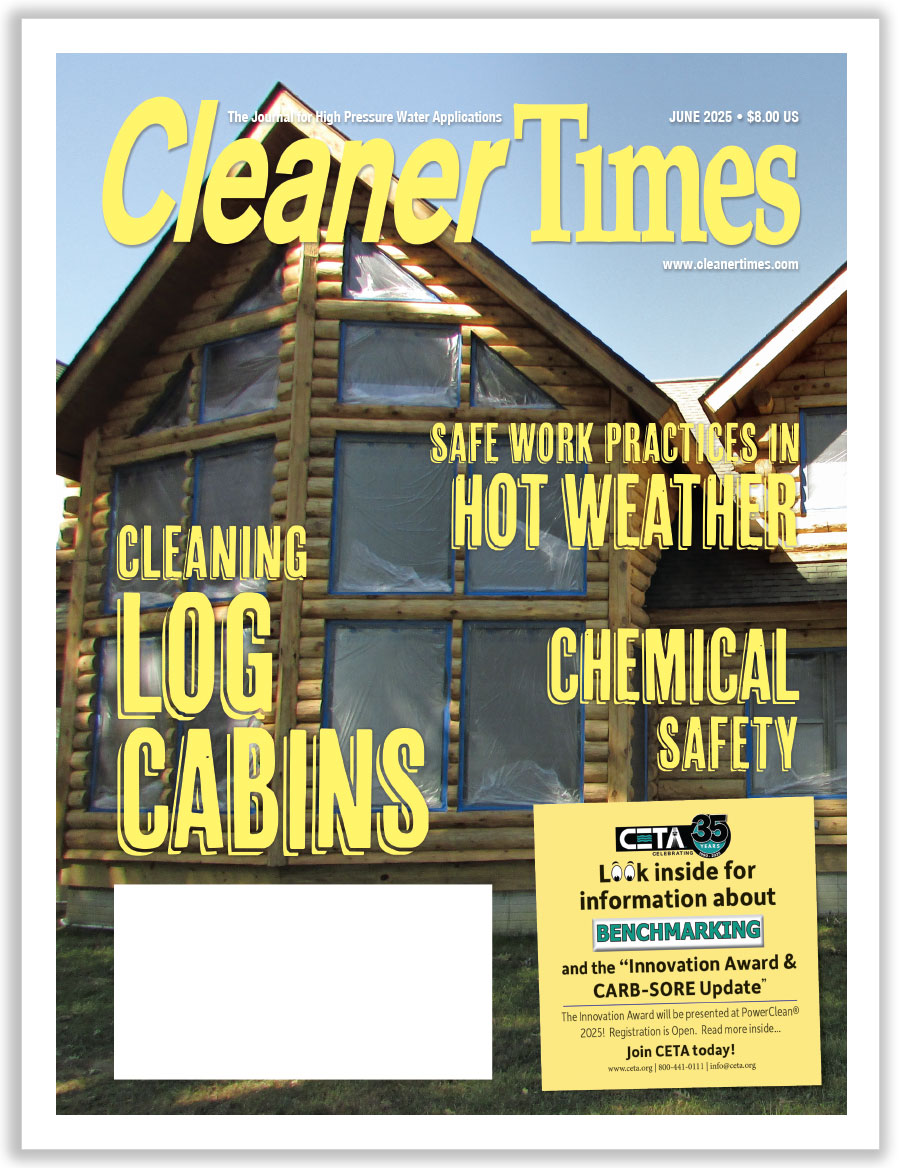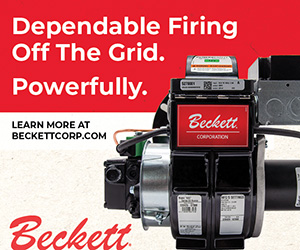
Financial
Where Is Today’s Funding?
Published September 2021

The old saying that “you need money to make money” has never been truer. With many of the government programs that helped so many pressure washing businesses survive the pandemic exhausting—or preparing to exhaust—their funding, where is today’s financing going to come from?
Without the special programs, loans, and grants created specifically to help survive the pandemic, new infusions of capital are necessary to regain pre-pandemic profits and to grow the operation. Once again, the old funding criteria—cash flow, credit, and collateral—kick in as so many businesses continue to struggle with the impact of the COVID-19 pandemic.
The Three Cs
A positive cash flow indicates the pressure cleaning operation’s ability to make regular loan payments. Every potential lender will look at future earning predictions before interest, taxes, depreciation, and amortization to determine whether cash flow warrants the financing sought.
Timely debt repayments are another factor lenders view. That means looking at how the borrower is using any existing loans and whether the operation remains in good standing with those earlier lenders. All are key credit indicators to lenders of the operation’s ability to handle additional debt.
And then there is collateral, the one asset lenders can take possession of and sell if the operation defaults on its debt. For many businesses, property such as vehicles, equipment, real estate, accounts receivable, and inventory are considered collateral.
Unless the operation’s owners, family members, or key employees have deep pockets, the three “Cs” can help finding the right potential lender. For most businesses lending options generally begin with their banks.
Initial Options
For every pressure cleaning business with a good track record before and hopefully through the recent economic downturn, traditional bank loans or SBA guaranteed loans may be the best option. Traditional banks have long been a great starting place when seeking funding.
Lower interest rates, fees, and better terms may offset the personal guarantees and risks associated with bank and SBA funding. Even without a strong track record or sufficient collateral to qualify for a bank loan, a discussion of the operation’s financing needs can steer the contractor, equipment manufacturer, or supplies distributor to other options.
Locally owned banks are a great resource for small business financing because of their strong interest in
economic development within the community. There are about 5,000 community banks in the U.S., and
prior to the pandemic, according to the FDIC, locally owned community banks held 36 percent of small business loans.
The Invaluable SBA
For those with poor credit or a lack of collateral, exploring alternative lenders might be necessary. The
Small Business Administration (SBA) is one option for pressure washing businesses that don’t meet the strict lending criteria of traditional banks.
With the SBA guaranteeing a loan, the bank’s risk is reduced as are the interest rates, fees, and other requirements imposed on lenders. Unfortunately, the SBA’s application process isn’t easy, and many business owners find themselves trapped under a heap of documents while working through the appropriate forms.
Businesses seeking funding through the SBA’s 7(a) loan program with no collateral must have at least two years of operating history, meet the SBA’s definition of “eligible small business,” and meet their credit requirements and revenue limits. However, if traditional banking and/or the SBA funding is going nowhere, the all-important line of credit might give the pressure cleaning operation some breathing room.
Lines of Credit
A line of credit means that a bank or other financial institution sets aside funds up to a certain credit limit that the business can borrow against as needed. All lines of credit consist of a set amount of money that can be borrowed, paid back, and borrowed again.
Interest is paid only when funds are “drawn” from the line of credit, with the rate of interest, size of payments, and other terms set by the lender. A line of credit can be secured (by collateral) or unsecured, with unsecured lines of credit typically subject to higher interest rates. Once the borrowed funds are paid back, the amount is again available for the operation to borrow.
A line of credit has built-in flexibility. After all, the business takes out only the money needed immediately and only pays interest on the amount “drawn down” until repaid. All too often, however,
longer-term funding is necessary and for that there are other funding options.
Other Options
A pressure washing operation that wants or needs to borrow outside the traditional bank or SBA system has many options. There are hundreds of specialist small business lenders that can help with those borrowing needs although requirements, terms, and interest rates will vary widely.
Like banks, credit unions offer favorable rates and loans backed by the SBA. However, unlike banks, credit unions have increased their small business funding. In fact, the number of credit unions offering small business financing has doubled according to the CFPB (Consumer Finance Protection Bureau).
With credit unions, membership is usually required. Fortunately, the co-op nature of credit unions often ties them to the community and means reaping the benefits of more personal relationships.
Equipment financing is ideal for any pressure cleaning business that needs hard assets quickly but can’t afford to purchase them outright. Equipment financing is available from banks and with SBA guarantees. There are also lenders, including distributors and manufacturers, offering targeted financing programs.
Invoice factoring and accounts receivable financing are similar borrowing concepts for short-term loans collateralized against money owed to the business. The interest rates on these advances are usually higher than an ordinary loan, and there are often other fees; but once again, in addition to traditional bank programs, there are factors [lenders that buy a company’s accounts receivables at a discount] and other specialty lenders all too willing to provide this type of financing.
The Internet
Thanks to changes by both the IRS and the Securities and Exchange Commission (SEC), crowdfunding is helping many small businesses. Crowdfunding that relies on investors can help get an idea, project, or business off the ground, often rewarding investors with perks and/or equity in exchange for cash.
Although the popularity of crowdfunding has increased, there are caveats. The proposal or business must, for example, be intriguing enough to attract multiple investors. With equity crowdfunding, where investors are given a stake in the business, there are strict SEC regulations both the business and investors must follow.
Somewhat less regulated, so-called funding “platforms” are an increasingly popular door to internet financing. With the government programs exhausted or gone completely and traditional banks continuing to limit access to capital, online lenders have become popular—especially for businesses and their owners struggling with bad credit.
With an online or alternative lender, bad credit is not always a barrier to getting the needed financing. However, while these lenders put up fewer barriers, the drawbacks include significantly higher interest rates, risk, and lower loan amounts.
An often-overlooked internet option are peer-to-peer (P2P) business lenders. These lenders eliminate the middleman, such as banks, to connect borrowers with individuals and institutional investors. Unfortunately, the cost of borrowing with P2P financing is usually much higher.
Still, alternative internet lenders are an option when the bank says no. Online lenders offer fast cash with a number of online lenders able to process funding within 24 hours. Financial technology, or FinTech, interacts with a major bank minus the human element or is offered by independent companies working outside traditional banks.
Choosing Well
Quite a few options exist for today’s business lending. Deciding on the best option for many pressure cleaning contractors, distributors, and manufacturers begins, as mentioned, with the bank used for most business banking. Even without a personal relationship with a banker, the bank may have a wider perspective of the operation’s debt, spending, and cash flow situation.
While the operation may just be a number in the system of a traditional bank, it is in the system, and that is a strong argument for getting a loan approved. If the operation’s current bank isn’t receptive, a new bank, perhaps a community bank, might be in order.
Community banks are more likely to consider all factors in addition to the usual cash flow, credit, and collateral factors. However, if traditional or community banking, even with a potential SBA guarantee, isn’t possible, alternative banking may be the answer.
Alternative funding options may be a good fit in many situations. Strong, positive cash flow generally matters far more to alternative lenders, easing the path to secured funds with less friction.
Today, almost every pressure washing business can secure a loan. Obviously, a business owner seeking to borrow faces many challenges. Will the money be available and, if so, at what cost? What will be the actual cost, including fees? Is the loan good for an extended period of time or can payment be demanded early?
Finally, if an owner is uncertain what the business cash flow, credit, and collateral might look like under the microscope, the operation’s CPA or financial advisor can help draw up a profile similar to that required by potential lenders. They might also help steer the pressure washing operation to potential funding sources.






